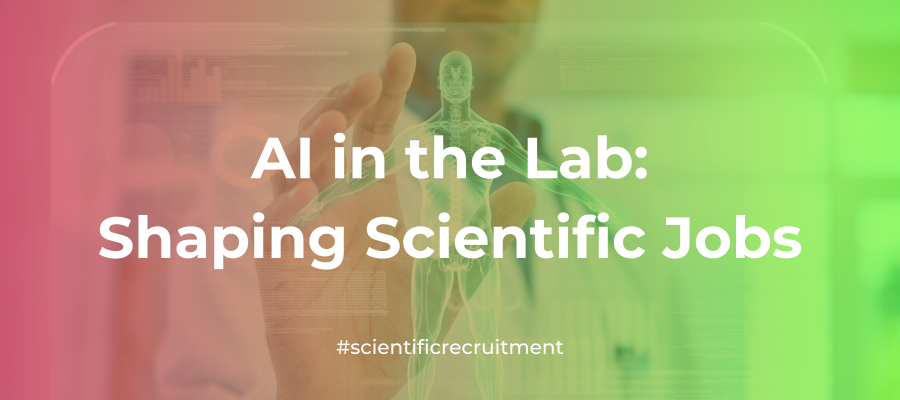Advancements in technology have revolutionised the scientific landscape, leading to significant changes in jobs. Technologies such as artificial intelligence (AI), machine learning and automation have brought about a shift in scientific research and development; reshaping the way experiments are conducted, data is analysed, and breakthroughs are made.
Machine learning models can now analyse complex data sets at speeds far surpassing human capabilities, uncovering hidden correlations and insights that might otherwise have gone unnoticed. These cutting-edge technologies are not only streamlining processes but also empowering scientists and researchers to achieve record levels of efficiency, productivity, and innovation.
As a result, professionals with expertise in these technologies are in high demand. Let's take a closer look at some of the scientific jobs that are now heavily utilising AI:
Data Scientists
Data scientists play a crucial role in scientific research by leveraging AI and machine learning algorithms to extract insights from large and complex datasets. These professionals are proficient in programming languages such as Python or R and have a deep understanding of statistical methods and data visualization techniques. Employers seek data scientists who can apply their expertise to drive decision-making and inform research strategies.
Bioinformatics Specialists
In the field of biology and genomics, bioinformatics specialists utilise AI and machine learning algorithms to analyse genomic data, predict protein structures, and identify genetic variations associated with diseases. These professionals possess a strong background in biology, bioinformatics, and computer science, enabling them to develop computational tools and algorithms to solve biological problems.
Research Engineers
Research engineers work at the intersection of engineering and scientific research, developing innovative technologies and solutions to advance scientific discovery. With expertise in AI and automation technologies, research engineers design and implement automated laboratory systems, robotic platforms, and sensor networks to streamline experimentation processes and enhance data collection and analysis.
Computational Chemists
Computational chemists leverage AI and machine learning techniques to model molecular structures, predict chemical reactions, and design novel drugs and materials. These professionals possess a strong foundation in chemistry, physics, and computational methods, enabling them to develop and apply computational models and algorithms to solve complex chemical problems.
Robotics Engineers
In scientific laboratories, robotics engineers design and deploy robotic systems to automate routine tasks, such as sample handling, assay preparation, and data collection. These professionals have expertise in robotics, control systems, and AI algorithms, enabling them to create robotic platforms that improve efficiency, accuracy, and reproducibility in scientific experiments.
At The ONE Group, we understand the importance of staying at the forefront of technological advancements in the scientific sector. As AI and automation reshape the landscape of scientific research, we are committed to helping our clients navigate these changes and attract top talent to their teams. If you're seeking a new job in the scientific sector, our expertise in scientific recruitment can help identify and connect you to your next opportunity.
Contact our scientific experts today to start your job search: info@theonegroup.co.uk


